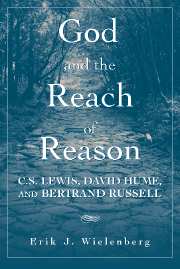1 - The Love of God and the Suffering of Humanity
Published online by Cambridge University Press: 05 June 2012
Summary
THE PROBLEM
On Sunday, December 26, 2004, an earthquake off the western coast of Indonesia‘s Sumatra Island triggered a massive tsunami that subsequently struck several countries, killing over 200,000 people. The hardest-hit countries included Indonesia, Thailand, Sri Lanka, and India. The tsunami struck with little or no warning. Entire villages were wiped from the face of the earth, and whole families were swept out to sea. The casualties were so overwhelming that little attempt was made to identify most of the corpses. Instead, they were buried as quickly as possible in mass graves.
In the aftermath of the disaster, one of the topics to which the popular media turned its attention was the problem of evil, a problem that philosophers and theologians have thought about for over two millennia. The problem of evil is often posed as a question: If there is an all-powerful, all-knowing, and perfectly good God, then why does the world contain the assorted evils that it does? The problem may be posed more aggressively as a challenge: If there were an all-powerful, all-knowing, and perfectly good God, then the world wouldn't contain the assorted evils that it does. Hence, no such God exists. A one-page article in the January 10, 2005, issue of Newsweek titled “Countless Souls Cry Out to God” hinted that the tsunami disaster constituted evidence that such a God does not exist, ending with these lines:
Whole families, whole communities, countless pasts and futures have been obliterated by this tsunami's roiling force. Little wonder that from Sumatra to Madagascar, innumerable voices cry out to God. […]
- Type
- Chapter
- Information
- God and the Reach of ReasonC. S. Lewis, David Hume, and Bertrand Russell, pp. 7 - 55Publisher: Cambridge University PressPrint publication year: 2007



